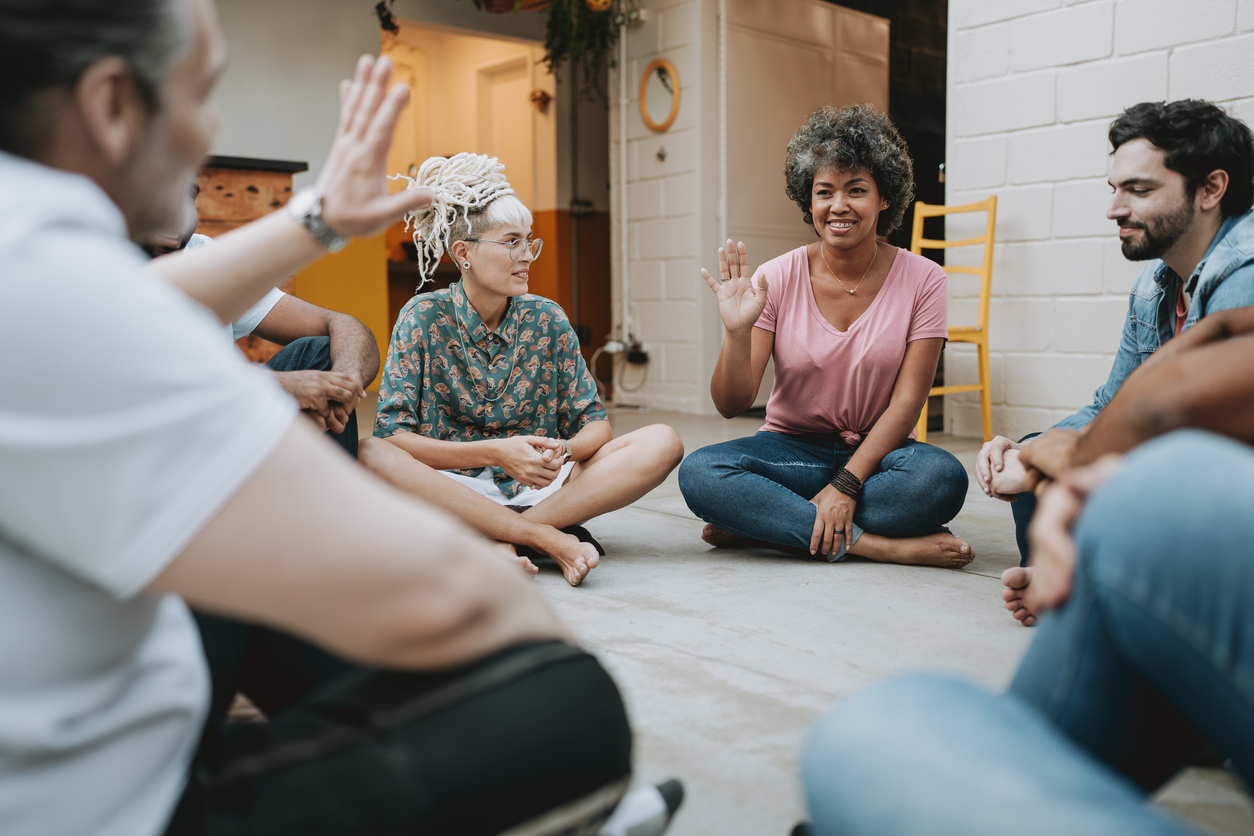Caregivers, are you part of the LGBTQ+ community, or caring for someone who is?
HopeHealth’s virtual LGBTQ+ Caregiver Support Group offers solidarity and support, for and led by other LGBTQ+ caregivers.
“We’re here to help with the struggles that caregiving brings, in any which way that may be, in a specifically LGBTQ+ gathering,” says HopeHealth clinical educator Lisa Wasson, RN, CHPN.
> Sign up for our LGBTQ+ Caregiver Support Group
For many LGBTQ+ caregivers, reaching out for help isn’t so simple
According to research, LGBTQ+ caregivers report higher rates of social isolation and depression, as well as high rates of discrimination in healthcare settings.
Recently, Lisa was personally reminded why. Her girlfriend was traveling in a part of the country struck by tornadoes. As Lisa anxiously awaited news that she was okay, she couldn’t help playing out what might happen if she wasn’t. If she’d been hospitalized, would the hospital provide LGBTQ-affirming care? How would the staff react when Lisa introduced herself as her partner?
“Will you be discriminated against? Will you be refused services? Will your partner or chosen family be included in decision making?” Lisa asks.
For many LGBTQ+ people, these questions loom large any time they or their loved ones need health care. It can be a huge barrier between them and services.
In response, HopeHealth is SAGECare certified for cultural competency in caring for LGBTQ+ elders, and has created gatherings especially for the LGBTQ+ community, including its LGBTQ+ Grief Support Group.
The LGBTQ+ Caregiver Support Group is the latest addition. For a co-facilitator, Lisa approached long-time HopeHealth volunteer Mark Gilchrist.
“Lisa said this support group would be a service to the gay community,” Mark recalls. “I said, ‘Sign me up.’”
> Related: LGBTQ grief support: Journey through love, loss, and renewed hope
“We understand the struggles you’ve been through”
After six years taking care of a beloved aunt with dementia, and as a long-time facilitator for two of HopeHealth’s general caregiver support groups, Mark acutely understands the mental, emotional and physical challenges of caregiving.
Because he is a 71-year-old gay man, he also understands how identifying as LGBTQ+ can add to that stress — especially for older adults, who grew up in a time of open discrimination.
“I remember the 1970s. I remember having to hide who I was,” says Mark. “I know what downright prejudiced is like. You get hardened to it after awhile, but it’s not a nice thing, that somebody is disgusted by you or hates you because of who you love.”
Even today, after decades of being openly gay, that awareness has never gone away. He thinks about it whenever he meets new people in the senior community he recently moved into.
“Whether they find out that I’m gay or not, I don’t care. I don’t live in the closet,” Mark says. “But I know some of them would reject me as even a potential friend. It is definitely a source for exclusion in the minds of many.”
By contrast, the LGBTQ+ Caregiver Support Group is created as a source for inclusion. The hope is for participants to trust that, whatever and however much they choose to share about themselves, they’ll be respected.
“You don’t have to explain yourself. We understand the struggles you’ve been through better than others might,” says Lisa.
> Related: Belong, understand, heal: Join our LGBTQ+ Grief Support Group
Discover a network of LGBTQ+ allies
The LGBTQ+ Caregiver Support Group is a safe space to talk about the personal highs and lows of caregiving — but it’s more than just that. It also offers plenty of practical tips and education, from community resources to strategies for avoiding burnout.
That includes information about trusted LGBTQ+ allies in the community.
“This is more than just a rainbow sticker on the door,” says Lisa. “It’s about where to find LGBTQ-affirming services, like residential facilities where same-sex couples may live together, and providers that focus on gender-affirming care.”
Finally, the group represents community: a crucial, often overlooked need for caregivers.
“A lot of caregivers feel very isolated, because they don’t know anyone else who is going through the same thing. But if you try going it alone, it’s very difficult,” says Mark. “When you get people together who have that in common, it’s amazing how refreshing it is. You see that you’re not alone.”

